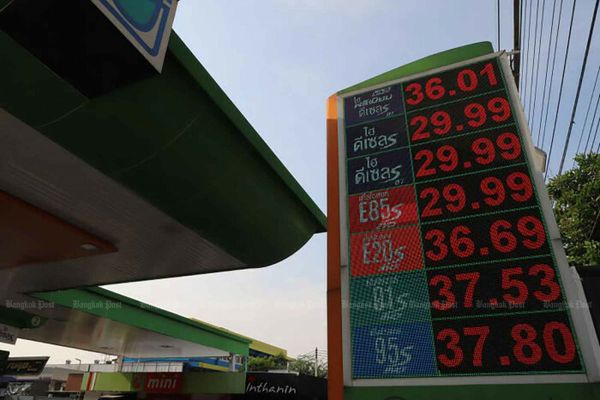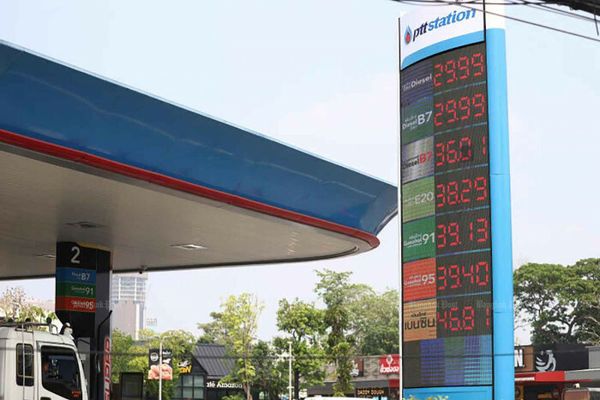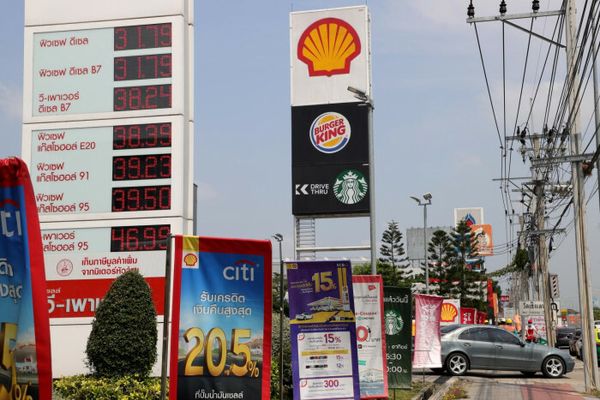
Urging the public to use private cars less often seems to be a sorely inadequate if not altogether irresponsible response to the oil price surge.
The government needs a more comprehensive and systematic plan to deal with the fallout on the energy sector caused by the Russia-Ukraine war.
As the United States mulled a ban on Russian oil imports even without Europe's cooperation, the price of Brent crude hit a 10-year high at US$130 (4,300 baht) per barrel on Sunday, surpassing the record of $128 in 2012.
With the war continuing into its 13th day, the oil price rise is expected to keep climbing.
Meanwhile, energy futures on the London stock exchange saw traders flocking into options that bet on oil prices soaring to as high as $200 per barrel by the end of the month, according to a report by the Wall Street Journal.
Prime Minister Gen Prayut Chan-o-cha on Monday expressed his concern about the soaring oil prices and possible effects on the larger energy sector. He did not reveal how the government would tackle the issues, though.
He only suggested that people save as much energy as they can. He also told the public only to use private cars when absolutely necessary.
It is no surprise that his comments, which sound more like an afterthought than an attempt to sketch out government policy, were met with disdain.
Many people said if private cars are to be used less often, members of the government should set a good example by abandoning their comfortable rides and spending more time in the slow lane along with the public.
It is clear that while people understand there must be a pinch following the oil price rise, which could push up the cost of living further, they expect the government to come up with measures that are well-thought-out and effective.
Above all, if there are to be relief measures, as well as restrictions to help save energy directly or to sensitise people so they become more aware of the situation, they should all be inclusive and fair.
Earlier, the government cut the excise tax by 3 baht from 5.99 baht per litre in an attempt to keep the retail price of diesel under 30 baht per litre.
The measure, to last until May 20, was implemented after truckers threatened to block roads if the government failed to cap the diesel price.
As for the immediate hike, the National Energy Policy Committee (NEPC) is expected to meet today to discuss measures.
The proposals will be forwarded to the cabinet for approval on March 15.
Hopefully these measures, be they subsidies or restrictions, will be more equitable and not designed to help only a certain group or profession as the cost is borne by all taxpayers.
If Gen Prayut is serious about wanting people to rely less on private cars, then restrictions that will be applied to all such as imposing vehicle access zones or congestion charges might be more effective both in terms of saving energy and as a way to send a message to the public to participate in the campaign.
If oil prices keep on surging, a mere plea for cooperation will be the least effective way to cope with the coming hardship.
The government must show it is capable of issuing policies and clear action plans that will help the public ride out the soaring oil prices fairly and effectively.










